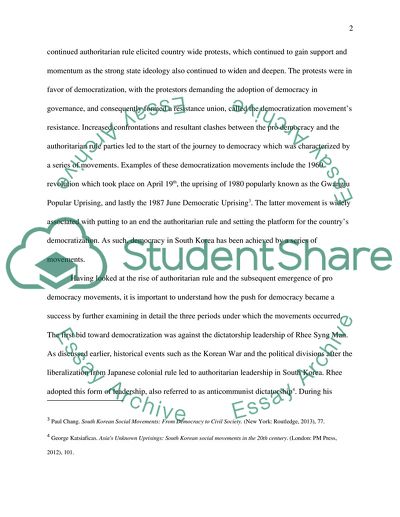Cite this document
(“Transition from Military to a Democracy Rule in South Korea Research Paper”, n.d.)
Transition from Military to a Democracy Rule in South Korea Research Paper. Retrieved from https://studentshare.org/social-science/1667653-transition-from-military-to-a-democracy-rule-in-south-korea
Transition from Military to a Democracy Rule in South Korea Research Paper. Retrieved from https://studentshare.org/social-science/1667653-transition-from-military-to-a-democracy-rule-in-south-korea
(Transition from Military to a Democracy Rule in South Korea Research Paper)
Transition from Military to a Democracy Rule in South Korea Research Paper. https://studentshare.org/social-science/1667653-transition-from-military-to-a-democracy-rule-in-south-korea.
Transition from Military to a Democracy Rule in South Korea Research Paper. https://studentshare.org/social-science/1667653-transition-from-military-to-a-democracy-rule-in-south-korea.
“Transition from Military to a Democracy Rule in South Korea Research Paper”, n.d. https://studentshare.org/social-science/1667653-transition-from-military-to-a-democracy-rule-in-south-korea.


